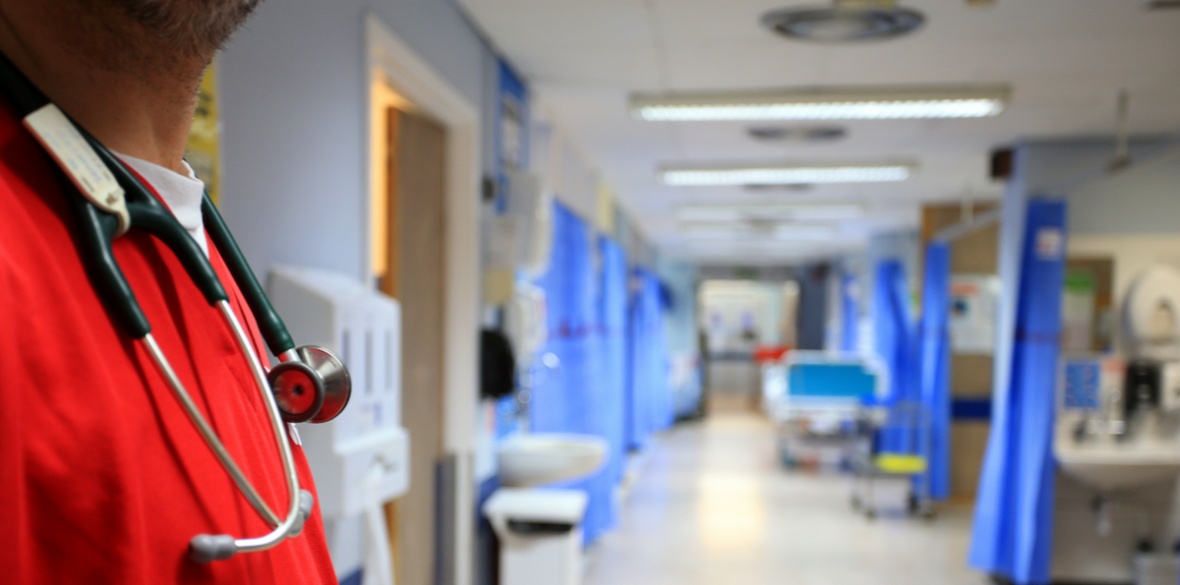
THE “two-tier” health service proposed by NHS Scotland chiefs in which “wealthy” patients would be made to pay for treatment is a menace overshadowing the NHS across Britain.
Scottish politicians have rightly slammed the proposal as unacceptable. It would undermine the founding principle of the NHS — that treatment is free at the point of use — and any means-testing would be a slippery slope.
Free treatment would end up being the exception, grudgingly extended to the poorest, like free school meals, one whose recipients would be at risk of frequent political attack by the right as scroungers or freeloaders — as the Conservative governments of the past 12 years have depicted people reliant on social security payments.
But the NHS bosses pitching for the right to charge patients are prompted to do so by funding shortages.
They talk of a “billion-pound hole” in their budget and note there are 6,000 nursing and midwifery posts unfilled across Scotland.
The funding and staffing crises are identical to those facing the NHS in England and Wales, and we would be naive to imagine similarly damaging “solutions” are not being mooted south of the border.
They are the reason A&E waiting time targets keep being missed, and that the NHS waiting list is now seven million.
Those are prompting the emergence of an effective two-tier health service already. The Private Healthcare Information Network reported earlier this year a 39 per cent rise in people paying for private treatment over the past two years, generally to get operated on more quickly.
Private healthcare is parasitical on the NHS, and its growth compounds the latter’s problems. Doctors and nurses trained by the NHS can leave it to find higher paid work privately, while when individual medical practitioners do both NHS and private work a conflict of interest can arise, especially where the NHS refers people for treatment by for-profit providers paid a premium to deliver care that could be done in-house.
Aside from means-testing free treatment, the NHS Scotland execs discussed dropping free prescriptions, a right not enjoyed in England since the 1950s, the restoration of which is seen as a signature achievement of the devolved Scottish and Welsh governments.
BBC health correspondent Nick Triggle notes that “payments are always controversial, but in the 1950s when budgets were tight payments were brought in for dentistry, prescriptions and spectacles.”
But the fact that something has been done before does not make it acceptable. The crisis in British dental cover, with people living with chronic pain or attempting risky DIY dentistry because treatment is unaffordable, illustrates that.
We should not be looking to reduce the number of services the NHS offers free of charge — we need to restore free dental care. It is worth remembering too that prescription, dentistry and optometry charges were brought in to help fund the Korean war, given the likely impact Conservative, Labour and — unfortunately — TUC support for higher military spending will have on public service budgets.
NHS funding shortages are exacerbated by commissioning of expensive private-sector provision, a consequence of a failure to fill staffing vacancies. They are also linked to the extortionate prices charged for certain drugs by Big Pharma, a reason to support the production of generic medicines.
But we also need a serious rise in funding to tackle the Covid backlog, care properly for an ageing population and address the myriad physical and mental health problems associated with the poverty, alienation and loneliness spawned by our sick capitalist society.
A Labour Party that accepts the Tories’ dodgy claims of a £50 billion black hole in the public finances will, like the Labour Party a decade ago that accepted the logic of austerity, end up reinforcing an agenda of cuts that do irreversible damage.
We need a real opposition, even if it must be built up from the streets.
MORNINGSTAR
No comments:
Post a Comment